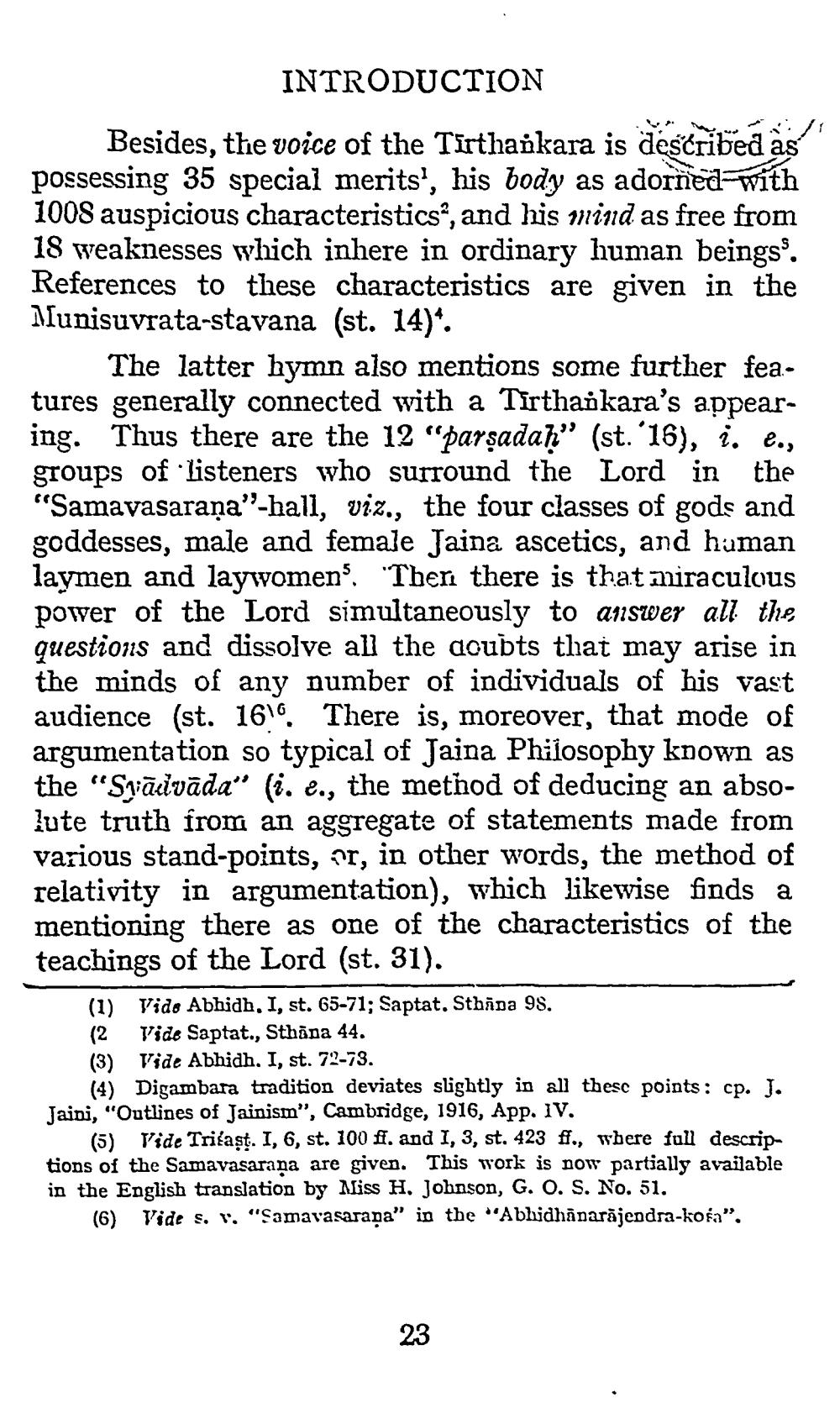________________
INTRODUCTION
Besides, the voice of the Tirthankara is described as possessing 35 special merits', his body as adorned with 1008 auspicious characteristics“, and his mind as free from 18 weaknesses which inhere in ordinary human beings'. References to these characteristics are given in the Alunisuvrata-stavana (st. 14)*.
The latter hymn also mentions some further features generally connected with a Tirthaikara's appearing. Thus there are the 12 "parsadan" (st. '16), Ž. e., groups of listeners who surround the Lord in the "Samavasarana"-hall, viz., the four classes of gods and goddesses, male and female Jaina ascetics, and human laymen and laywomens. "Then there is that miraculous power of the Lord simultaneously to answer all the questions and dissolve all the doubts that may arise in the minds of any number of individuals of his vast audience (st. 1616. There is, moreover, that mode of argumentation so typical of Jaina Philosophy known as the "Sjādivāda" (i. e., the method of deducing an absolute truth from an aggregate of statements made from various stand-points, nr, in other words, the method of relativity in argumentation), which likewise finds a mentioning there as one of the characteristics of the teachings of the Lord (st. 31).
(1) Vido Abhidh. I, st. 65-71; Saptat. Sthina 98. (2 Vido Saptat., Sthana 44. (3) Vide Abhidh. I, st. 72-73.
(4) Digambara tradition deviates slightly in all thesc points: cp. J. Jaini, "Outlines of Jainism", Cambridge, 1916, App. IV.
(5) Vide Trilast. I, 6, st. 100 ff. and I, 3, st. 423 ff., where full descriptions of the Samavasarana are given. This work is now partially available in the English translation by Miss H. Johnson, G. O. S. No. 51.
(6) Vide s. r. "Samavasarapa" in the "Abhidhānarăjendra-kosa”.




